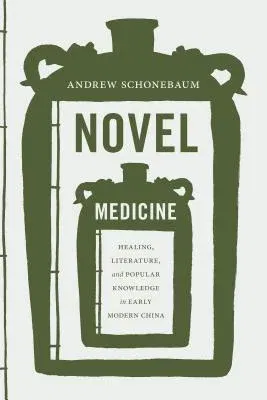Andrew Schonebaum
(Author)Novel Medicine: Healing, Literature, and Popular Knowledge in Early Modern ChinaPaperback, 2 October 2018

Qty
1
Turbo
Ships in 2 - 3 days
In Stock
Free Delivery
Cash on Delivery
15 Days
Free Returns
Secure Checkout

Part of Series
Modern Language Initiative Books
Print Length
296 pages
Language
English
Publisher
University of Washington Press
Date Published
2 Oct 2018
ISBN-10
0295744316
ISBN-13
9780295744315
Description
Product Details
Author:
Book Format:
Paperback
Country of Origin:
US
Date Published:
2 October 2018
Dimensions:
21.84 x
14.22 x
2.03 cm
Genre:
Asian - Chinese
ISBN-10:
0295744316
ISBN-13:
9780295744315
Language:
English
Location:
Seattle
Pages:
296
Publisher:
Weight:
376.48 gm